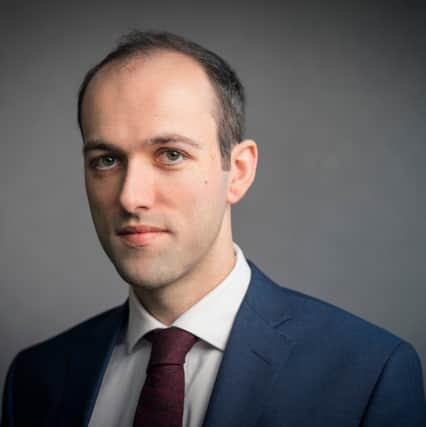What can we each do as a minor protagonist in the story of tackling climate change? - Martin Whiteford


In the last few weeks, Tesla made a decision that they would no longer accept payment for their cars in Bitcoin due to the carbon emissions generated by ‘mining’ the cryptocurrency. The superficial story arc here is one of competing new technologies at odds with each other within the wider context of our transition to a net zero economy.
We are now in a period of exponentially accelerating technology. The pace of technological progress speeds up while simultaneously dropping in price.
Advertisement
Hide AdAdvertisement
Hide AdThe true story is, in fact, that these exponentially accelerating technologies are also converging. Your new car will rely upon huge leaps in AI, batteries, materials science and autonomous vehicle control. These converging technologies are sweeping away existing products, services and even markets.
There is no way to understand our world without stories. With climate change, however, for us as individuals, and as individual organisations, we often face what David Wallace-Wells called Climate’s Kaleidoscope: “we can be mesmerized by the threat directly in front of us without ever perceiving it clearly”.
Blind faith in exponential technology change isn’t enough to address the climate crisis. Solutions are now being made available by the speed of technological change. Exponential technology, for the first time in history, gives each of us the opportunity to tackle large problems.
There continues to be incredible work done in solar energy materials that continues to push the price of solar down to unprecedented levels. Over the past 40 years, there has been a three hundredfold reduction in the cost of making a solar panel. We are close to affordable solar energy for everyone. Solar, unlike other technologies, can operate at any scale from the roof of your new garden office to large parcels of the Sahara desert. Cheap solar can assist in lowering the price of green hydrogen to decarbonise transport, heating and heavy industry. Solar is converging with battery, transport, blockchain and smart grids to change the nature of power supply.
Imagination isn’t the hard part. We have already imagined the solutions. We just haven’t yet discovered the economic might, the political will and, perhaps, the captivating story to implement them. The scale of transformation required dwarfs every technological revolution ever engineered in human history. Scenes in stories without cause and effect tend to lack urgency. As the Oscar winning screenwriter Aaron Sorkin once said about writing a scene: “Somebody’s got to want something, something’s got to be standing in their way of getting it.”
As the primary actors meet in Glasgow in November for COP26, what can we each do as a minor protagonist in this story?
When we consider our own storylines, how do we match visionary technology with, well, vision? Vision requires long-term thinking. Organisations too often have a short attention span looking only as far ahead as the next financial year or election cycle.
That may be slowly changing under the banner of ‘Environmental, Social and Governance (ESG) Strategy’. Shareholders, staff, funders and customers are now demanding businesses and public bodies have a carefully-considered actionable ESG strategy. They’re asking how targets become projects, how a wider net zero strategy actually becomes a solar array beside your factory or a ground source heat pump next to your office.
Advertisement
Hide AdAdvertisement
Hide AdIf a character in a story doesn’t want something, they’re passive and the writer has no hope of bringing the character alive, no hope of telling a story. Businesses that don’t actively engage with the risk and opportunities of the low carbon transition risk their passivity leading to their own existential crisis. Those organisations that set out their story in a clear strategy and then, importantly, bring it to life, can start on their hero’s journey to victory through crisis.
Martin Whiteford is a Partner and renewable energy specialist, Anderson Strathern